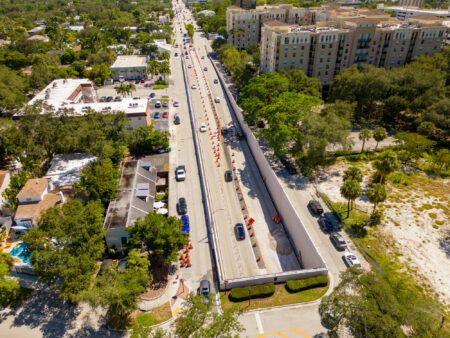Emovis, the French-based toll service delivery and technology arm of the Spanish concessionaire and infrastructure giant Abertis, has been selected to provide various services for the Road Usage Charge (RUC) Pilot Project by the Washington State Transportation Commission (WSTC).
As the fuel efficiency of vehicles increases, and more drivers turn to electric or other power sources, gasoline consumption decreases, leading to a reduction in the gas tax revenues that serve as the major source of funding for building and maintaining highways, bridges and ferries. With a projected decrease in revenues of nearly 50% by 2035, the Washington state government, along with several other legislatures across the USA, has been looking at alternative funding models. The WSTC has been assessing a Road Usage Charge (RUC) as a possible replacement for the gas tax in the future, with a year-long pilot project due to start this autumn.
Emovis will implement a cloud-hosted back office system and provide On-Board Diagnostic System Unit (OBD-II) and smartphone app technology to record road users’ mileage and collect their Road Usage Charge. For some users, this will involve the collection of real charges in a complete end-to-end road charging chain. The project illustrates Emovis’s long history of RUC projects worldwide, with the company also involved in the Oregon RUC Pilot Program in the USA, as well as several RUC schemes and pilots in Europe.
Operating some of the world’s largest All Electronic Tolling infrastructures in the UK, Ireland, USA and Canada, Emovis has considerable experience in both onboard and back office technology. The Washington pilot will use various technologies to record and explore anomalies in mileage reporting, and will also elicit feedback from drivers of electric vehicles (EVs), who currently pay an additional annual registration fee in Washington.
One of the program’s key objectives is to test the interoperability of multi-jurisdictional charging, including drivers from Oregon’s OReGO program, and volunteers from Canada and Idaho. The City of Surrey in British Columbia has agreed to partner in the pilot, with at least 50 drivers from Surrey and the surrounding Greater Vancouver area participating, up to a maximum of 200 taking part in the cross-border trials. This portion of the pilot will test international interoperability, including foreign currency exchange rates, which is an area where Emovis has significant experience already, such as its system for charging UK drivers in pounds (sterling) for using French tolls that are priced in euros.




